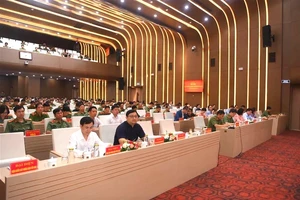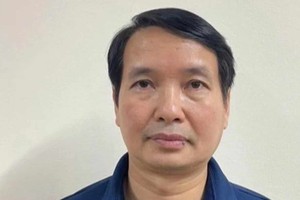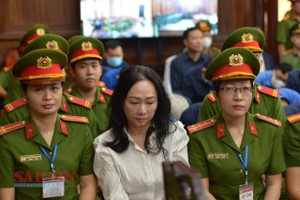Labourers who are ineligible for retirement pensions because they have not made compulsory social insurance payments for the required amount of years may choose to get a one-off lump sum or continue to receive monthly payments if a Government proposal gets approval from the National Assembly later this month.

Minister of Labour, Invalids and Social Affairs Pham Thi Hai Chuyen made the proposal after presenting a Government report on Article 60 of the 2014 Law on Social Insurance at the ongoing 9th session of the 13th National Assembly in Ha Noi yesterday.
According to the report, the Government asked for modifications to the article to create a flexible policy on social insurance, meeting the wishes of many labourers.
The regulation would also be applied to voluntary social insurance payers.
Chuyen said that the 2014 Law on Social Insurance had additional regulations to create favourable conditions for labourers to pay insurance so that they could receive monthly pension payments when they retired.
She predicted that the number of labourer who opted for lump sum payments would fall when they learnt more about the advantages of a monthly pension.
Chairwoman of the NA Committee on Social Affairs Truong Thi Mai said the majority of the committee's members agreed with the Government's proposal.
However, she asked the Government to map out a plan for one-time payments to match the number of labourers and the development of the labour market.
The modifications to Article 60 should ensure that more labourers receive a pension when they retire, she said.
NA deputies will continue to discuss Article 60 in groups today before a plenary session on May 27.
The same day, the deputies stressed the need to continue amending, supplementing and issuing new laws during their discussions on lawmaking in 2015 and 2016.
Head of the NA's Law Committee, Phan Trung Ly, presented a statement pointing out that five more laws would be added to the NA's law building and endorsement programme this year, and the plan for 2016 would cover 31 laws, 2 decrees and one resolution.
Deputies concurred that law building was a key task in order to institutionalise the Party's resolutions and constitutional regulations.
Later in the day, they heard reports and discussed some points on the draft revised Law on Military Service.
Fatherland Front law
In the morning session, lawmakers suggested increasing the Viet Nam Fatherland Front's role of supervising new laws and policies.
Debating the revised Viet Nam Fatherland Front bill, deputies focused on the Front's rights, responsibility, operation and organisational structure.
Many deputies said that the bill lacked specific regulations on the rights and responsibilities of the Viet Nam Fatherland Front as regulated in the 1992 Constitution.
They said the law should have specific regulations to promote the Front's role and responsibility in strengthening the consolidation of the Party and Government.
Deputy Tran Khac Tam from Soc Trang Province said the social influence of the Viet Nam Fatherland Front had remained limited.
"The Front should take responsibility to represent public opinion on every ruling and policy the Party puts forward because they are all directly related to...
the rights and benefits of people and the country's development," said Tam.
"By doing that, new policies would receive more supports from society," added Tam.
Deputy Tran Tien Dung from Ha Tinh Province said that the Front should have the right to dispute new laws and polices as well as existing legislation, especially those directly related to the country's socio-economic development and the legal rights and benefits of the people.
Deputies also agreed with the bill's proposal to establish a Fatherland Front board at communes and hamlets to implement the organisation's work at a grassroots level.
On the same day, deputies also heard a statement on the National Assembly's law and ordinance programmes for 2016; adjustments to the law and ordinance making programme of the NA's 8th session in 2015; and the election of deputies to the National Assembly and People's Council bill.
























